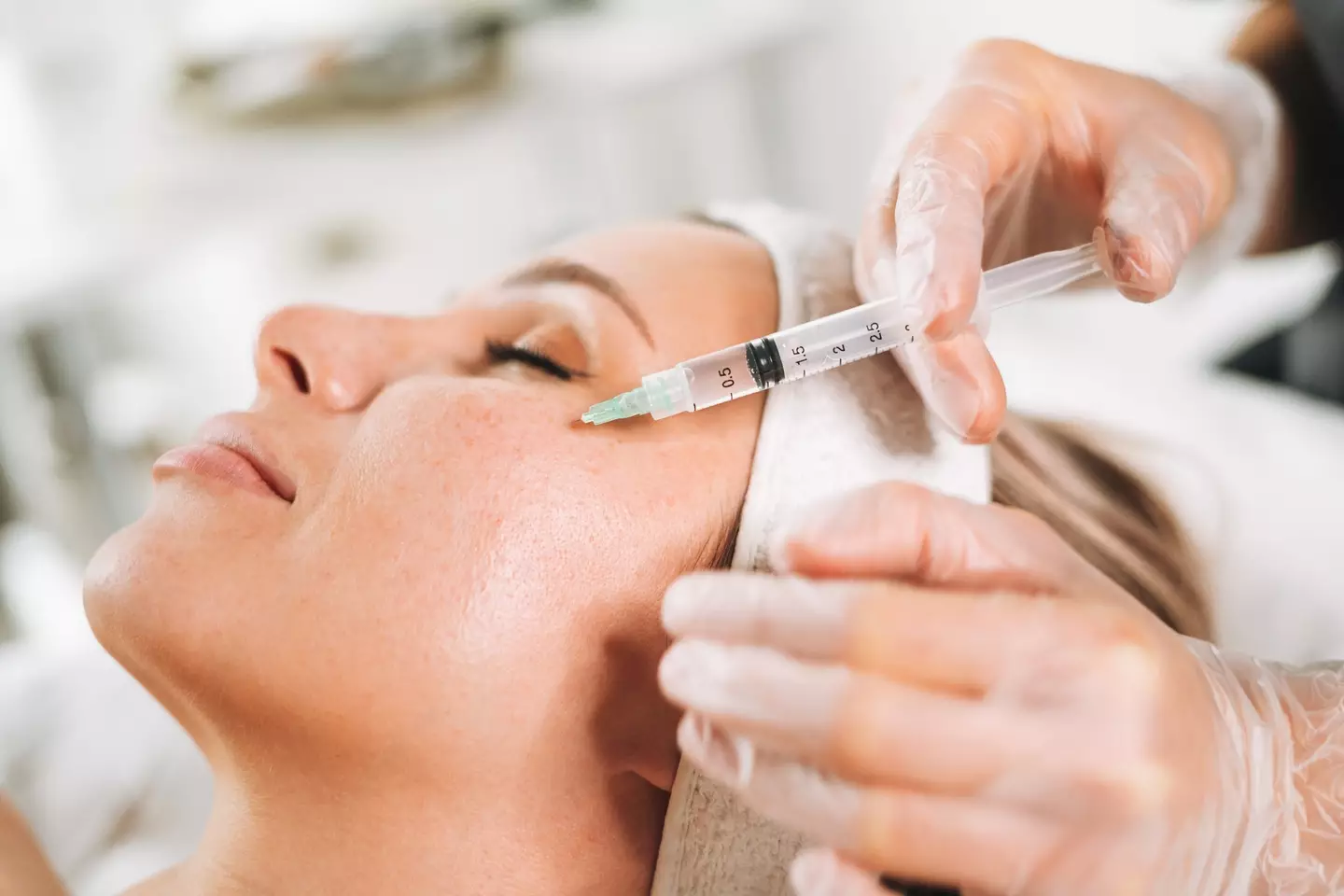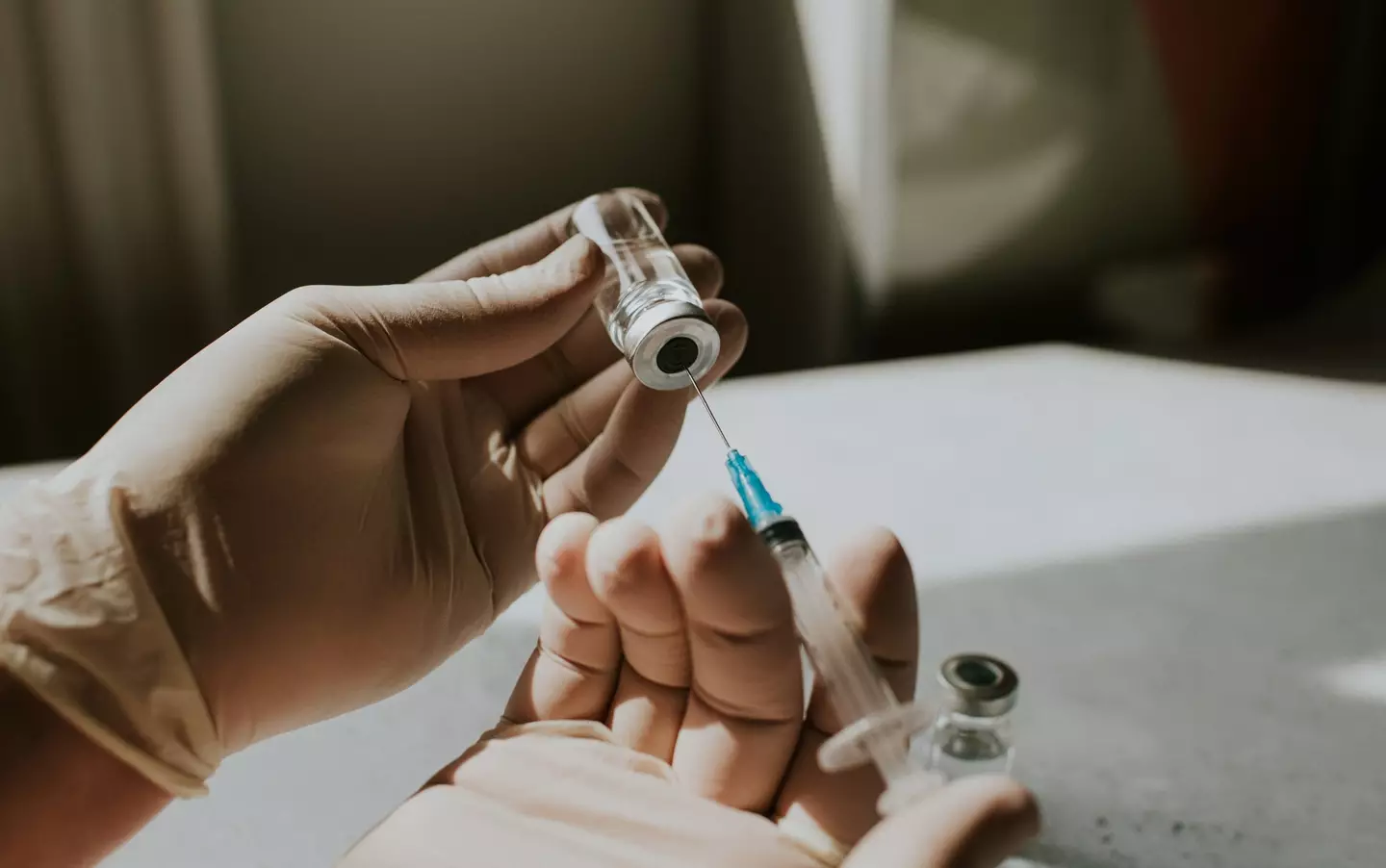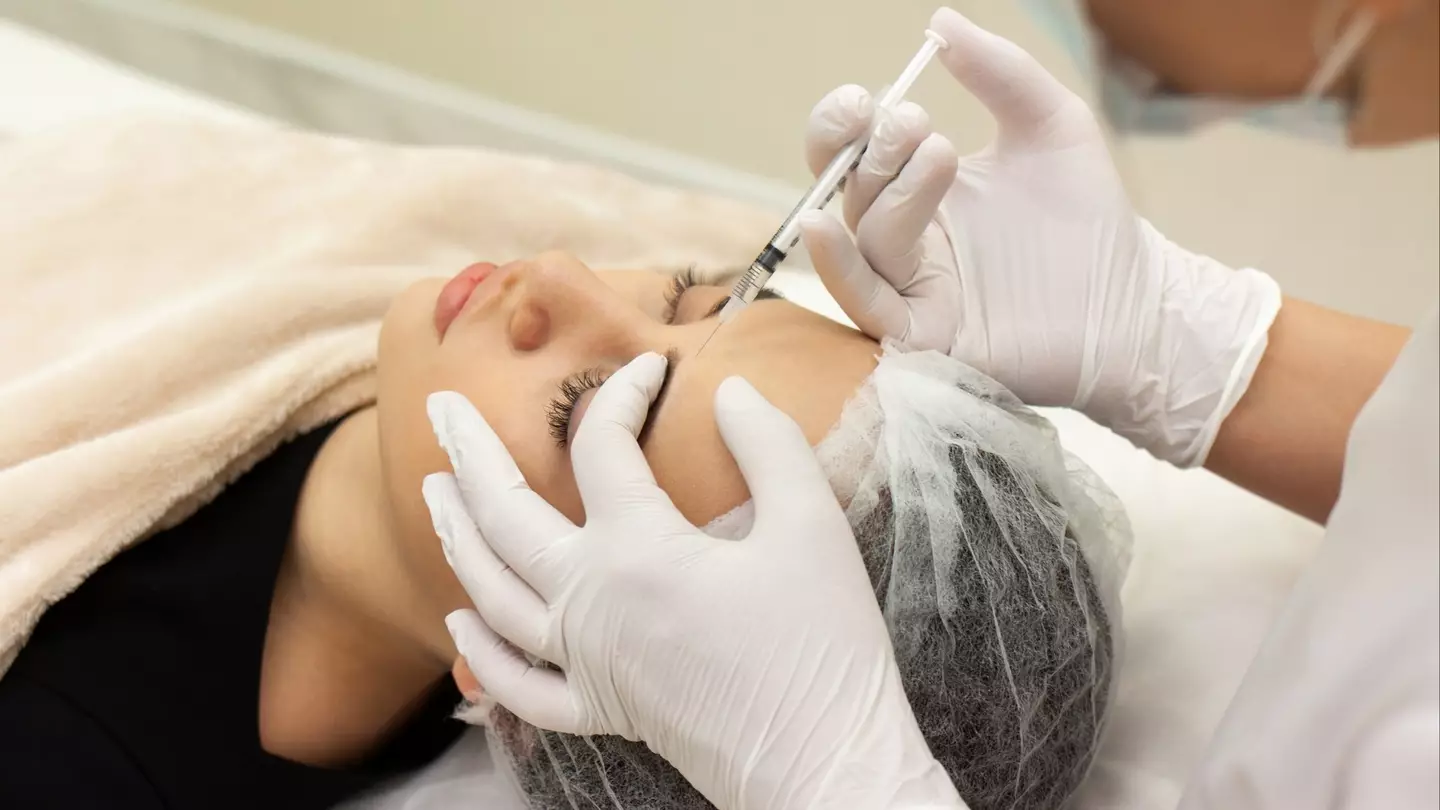Medical professionals are raising alarms about the increasing trend of ‘DIY Botox,’ as many individuals have begun sharing their experiences with self-administered cosmetic treatments on social media platforms.
This practice involves people performing their own cosmetic injections, such as Botox, without professional supervision, and it’s causing concern among healthcare experts.
Specifically, a product called Innotox, often dubbed ‘Korean botox,’ is gaining popularity. It contains type A botulinum toxin, which interferes with nerve signals to the muscles, affecting facial movement.
In an effort to cut costs, individuals are purchasing Innotox online, often from unverified third-party sellers.
However, it’s important to note that the Food and Drug Administration (FDA) has not approved Innotox for use in the United States. Health authorities emphasize the dangers of self-injecting any chemical substances into the body due to the risks of facial paralysis, infections, and other serious complications.

Potential hazards include allergic reactions, drooping eyelids, uneven facial features, or an unintended ‘frozen’ appearance. There is also the potential danger of damaging a blood vessel or nerve, which could result in numbness, tingling, or muscle weakness.
Consultant plastic surgeon and spokesperson for the British Association of Plastic, Reconstructive and Aesthetic Surgeons (BAPRAS), Aenone Harper-Machin, mentioned to The Guardian: “People could be giving themselves eyelid droops and all sorts of weird asymmetries by injecting it in the wrong place, too deeply, too superficially. You can inject it into your blood vessel and give yourself botulism.”
The Cleveland Clinic describes botulism as a rare condition where a toxin from Clostridium botulinum bacteria attacks the nervous system, a bacterium also used in Botox.
New York cosmetic dermatologist Dr. Michele Green told The Daily Mail that although it might be ‘a cheaper alternative to a regulated neuromodulator’, with the American Society of Plastic Surgeons estimating the average cost of Botox administration at about $400, the ‘drawbacks significantly outweigh the benefits’.

Dr. Mo Akhavani, co-founder of The Plastic Surgery Group, also cautioned about the potentially fatal outcomes, stating: “There is a serious risk of an allergic reaction, which would cause an anaphylactic shock, and when this happens at home, you will not have the response kit needed, which means it could be deadly.”
Concerns are also mounting regarding the risk of purchasing counterfeit products due to the lack of regulation when buying medication online.
Dr. Michelle Henry, a board-certified dermatologist, shared with TODAY.com her experiences with the adverse effects of ‘unregulated aesthetic products’, noting that she has treated ‘patients come in with self-injected filler that they’ve gotten online … and ended up with infections and bumps’.
Medytox, the company behind Innotox, informed TODAY.com that it ‘only sells prescription products to authorized medical providers and medical distribution companies’, expressing that they were ‘unaware that some of the product is being offered online in unapproved countries or available to consumers’.
They added: “Medytox certainly does not endorse the self-injection of botulinum toxins by consumers.”
The company further stated that they ‘were not previously aware’ of their product being sold by third-party vendors and plan to ‘investigate this unauthorized activity. … Only medical providers in countries that have approved Medytox products should be using our brands’.
Medytox has been approached for further comment.

